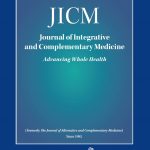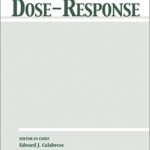Karine Danno, Aurélie Colas, Gilles Freyer, Jean-Paul Guastalla, Gérard Duru, Eric Musial, Vincent Libourel, Jean-Philippe Fendler, Jean-Louis Masson, Marie-France Bordet
Motivations of patients seeking supportive care for cancer from physicians prescribing homeopathic or conventional medicines: results of an observational cross-sectional study
Homeopathy, 2016, 105 (4), 289-298

Background & aims – The motivations of patients who consult a homeopathic (GP-Ho) or conventional (GP-CM) general practitioner for supportive care during cancer treatment have not been widely studied. We investigated the reasons why cancer patients consult a GP-Ho versus a GP-CM for supportive care and the GPs’ motivations for their prescriptions.
Methods – This observational survey was carried out in France between October 2008 and October 2011. GPs across France were randomly selected and asked to recruit four cancer patients each. At inclusion, the sociodemographic and clinical (including psychological) characteristics and medical history of the patients were recorded by the GPs and the patients noted their quality of life (QoL) and anxiety/depression using the Quality of Life Questionnaire-C30 (QLQ-C30) and Hospital Anxiety and Depression Scale (HADS) self-questionnaires. The main motivations of the patients regarding the type of GP consultation and the main reasons for the GPs’ prescriptions were recorded.
Results – Six hundred and forty four patients were included in the analysis: 399 consulted a GP-CM (n = 112) and 245 a GP-Ho (n = 73). Patients consulting a GP-Ho were more often female [OR = 1.93; 95%CI: 1.11–3.35; p = 0.02], employed in a professional capacity [OR = 6.57; 95%CI: 1.96–21.99; p = 0.002], have a shorter time since cancer diagnosis [OR = 2.19; 95%CI: 1.24–3.87; p = 0.007], have received targeted anticancer therapy [OR = 3.70; 95%CI: 1.67–8.18; p = 0.001] and have a high QLQ-C30 score for constipation [OR = 1.01; 95%CI: 1.00–1.02; p = 0.001]. Patients mainly consulted a GP-Ho to receive overall care (73.5% vs. 64.9%; p = 0.024) and medicines to prevent anticancer treatment-related side-effects (63.7% vs. 41.4%; p < 0.0001). In contrast, patients consulted a GP-CM to receive psychological care (50.1% vs. 40.8%; p = 0.021) and more information regarding the oncologists’ strategic decisions (p < 0.0001). There was a significantly greater prescription of psychotropic drugs by GP-CM (53.7% vs. 22.4%, p < 0.0001).
Conclusions – Patients consulting a GP-Ho or GP-CM had different motivations for seeking supportive care. There was a significantly greater prescription of psychotropic drugs by GP-CM.








Lascia un commento
Devi essere connesso per inviare un commento.